Filter by
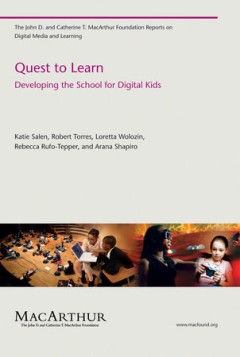
Quest to Learn: Developing the School for Digital Kids
The design for Quest to Learn, an innovative school in New York City that offers a “game-like” approach to learning. Quest to Learn, an innovative school for grades 6 to 12 in New York City, grew out of the idea that gaming and game design offer a promising new paradigm for curriculum and learning. The designers of Quest to Learn developed an approach to learning that draws from what gam…
- Edition
- -
- ISBN/ISSN
- 9780262294164
- Collation
- -
- Series Title
- -
- Call Number
- -
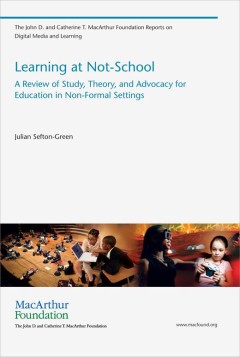
Learning at Not-School: A Review of Study, Theory, and Advocacy for Education…
- Edition
- -
- ISBN/ISSN
- 9780262311984
- Collation
- -
- Series Title
- -
- Call Number
- -
- Edition
- -
- ISBN/ISSN
- 9780262311984
- Collation
- -
- Series Title
- -
- Call Number
- -
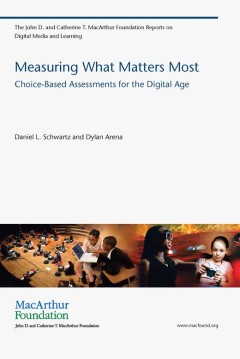
Measuring What Matters Most: Choice-Based Assessments for the Digital Age
An argument that choice-based, process-oriented educational assessments are more effective than static assessments of fact retrieval. If a fundamental goal of education is to prepare students to act independently in the world—in other words, to make good choices—an ideal educational assessment would measure how well we are preparing students to do so. Current assessments, however, focus …
- Edition
- -
- ISBN/ISSN
- 9780262312882
- Collation
- -
- Series Title
- -
- Call Number
- -
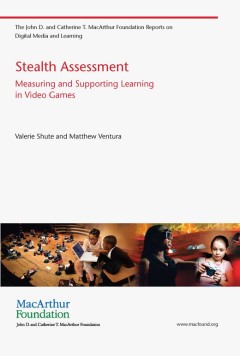
Stealth Assessment: Measuring and Supporting Learning in Video Games
An approach to performance-based assessments that embeds assessments in digital games in order to measure how students are progressing toward targeted goals. To succeed in today's interconnected and complex world, workers need to be able to think systemically, creatively, and critically. Equipping K-16 students with these twenty-first-century competencies requires new thinking not only about…
- Edition
- -
- ISBN/ISSN
- 9780262315210
- Collation
- -
- Series Title
- -
- Call Number
- -
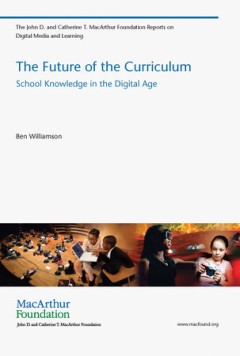
The Future of the Curriculum: School Knowledge in the Digital Age
An examination of curriculum innovations that are shaped by new ideas about digital media and learning. Although ideas about digital media and learning have become an important area for educational research, little attention has been given to the practical and conceptual implications for the school curriculum. In this book, Ben Williamson examines a series of contemporary curriculum innovati…
- Edition
- -
- ISBN/ISSN
- 9780262315180
- Collation
- -
- Series Title
- -
- Call Number
- -
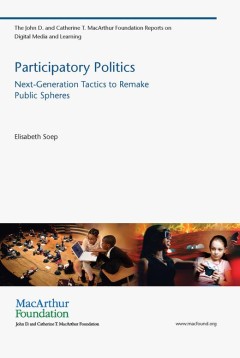
Participatory Politics: Next-Generation Tactics to Remake Public Spheres
An examination of the mix of face-to-face and digital methods that young people use in their experiments with civic engagement. Although they may disavow politics as such, civic-minded young people use every means and media at their disposal to carry out the basic tasks of citizenship. Through a mix of face-to-face and digital methods, they deliberate on important issues and debate with peer…
- Edition
- -
- ISBN/ISSN
- 9780262320207
- Collation
- -
- Series Title
- -
- Call Number
- -
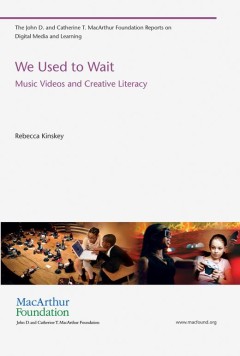
We Used to Wait: Music Videos and Creative Literacy
An investigation of music videos as a form, a practice, and a literacy. Music videos were once something broadcast by MTV and received on our TV screens. Today, music videos are searched for, downloaded, and viewed on our computer screens—or produced in our living rooms and uploaded to social media. In We Used to Wait, Rebecca Kinskey examines this shift. She investigates music video as a …
- Edition
- -
- ISBN/ISSN
- 9780262325479
- Collation
- -
- Series Title
- -
- Call Number
- -
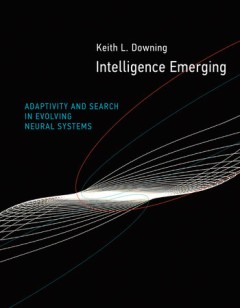
Intelligence emerging : adaptivity and search in evolving neural systems
"Emergence--the formation of global patterns from solely local interactions--is a frequent and fascinating theme in the scientific literature both popular and academic. In this book, Keith Downing undertakes a systematic investigation of the widespread (if often vague) claim that intelligence is an emergent phenomenon. Downing focuses on neural networks, both natural and artificial, and how the…
- Edition
- -
- ISBN/ISSN
- 0262328666
- Collation
- 1 online resource (xxii, 475 pages) :illustrations
- Series Title
- -
- Call Number
- -
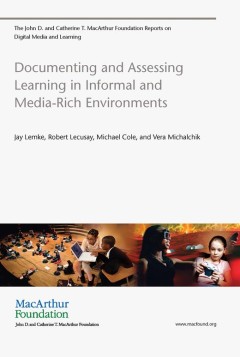
Documenting and Assessing Learning in Informal and Media-Rich Environments
An extensive review of the literature on learning assessment in informal settings, expert discussion of key issues, and a new model for good assessment practice. Today educational activities take place not only in school but also in after-school programs, community centers, museums, and online communities and forums. The success and expansion of these out-of-school initiatives depends on our…
- Edition
- -
- ISBN/ISSN
- 9780262328692
- Collation
- -
- Series Title
- -
- Call Number
- -
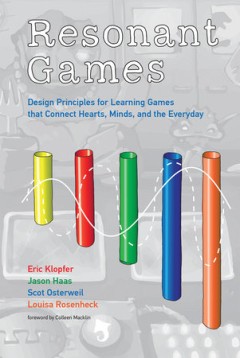
Resonant Games: Design Principles for Learning Games that Connect Hearts, Min…
Principles for designing educational games that integrate content and play and create learning experiences connecting to many areas of learners' lives. Too often educational videogames are narrowly focused on specific learning outcomes dictated by school curricula and fail to engage young learners. This book suggests another approach, offering a guide to designing games that integrates conte…
- Edition
- -
- ISBN/ISSN
- 9780262346078
- Collation
- -
- Series Title
- -
- Call Number
- -
 Computer Science, Information & General Works
Computer Science, Information & General Works  Philosophy & Psychology
Philosophy & Psychology  Religion
Religion  Social Sciences
Social Sciences  Language
Language  Pure Science
Pure Science  Applied Sciences
Applied Sciences  Art & Recreation
Art & Recreation  Literature
Literature  History & Geography
History & Geography